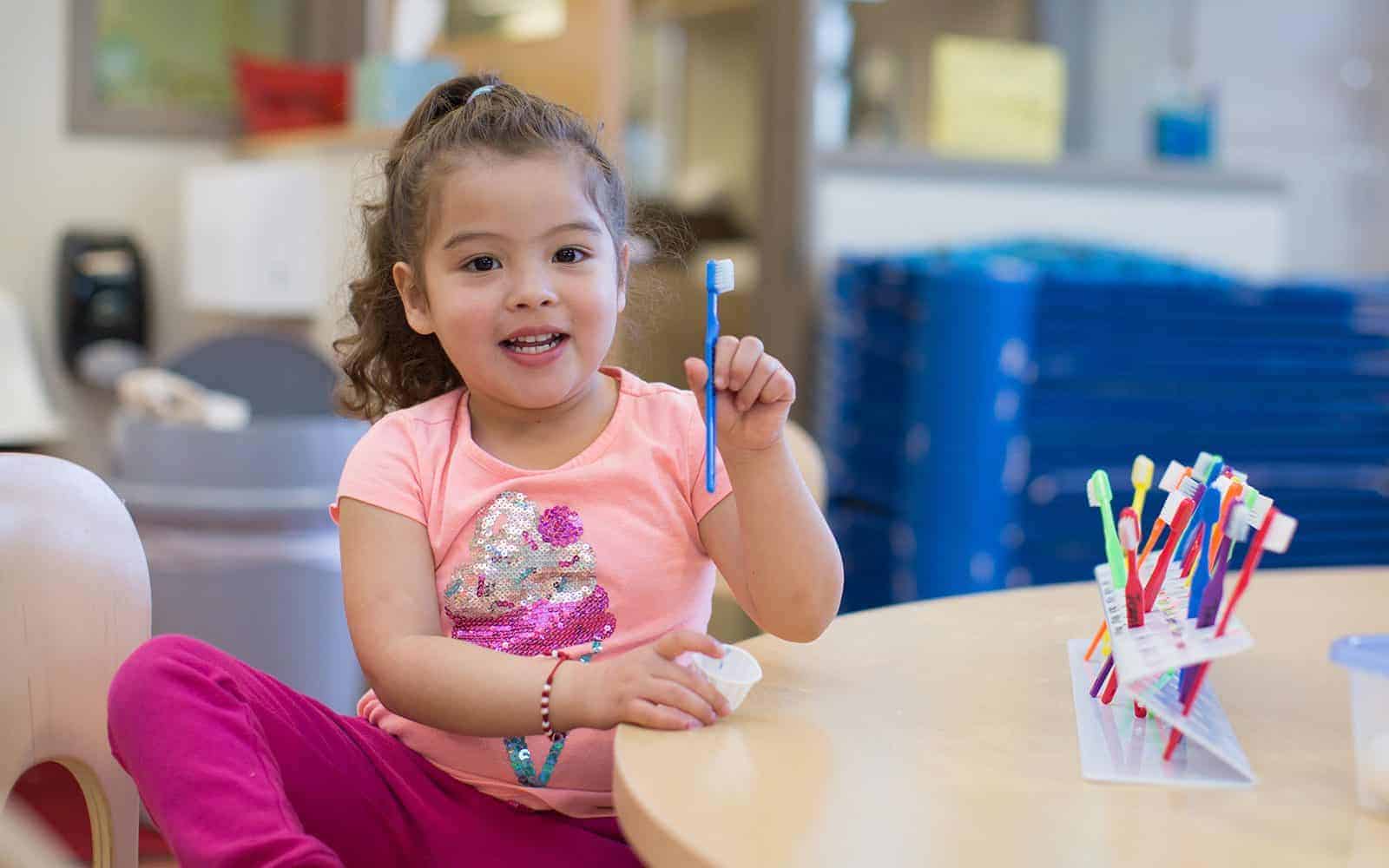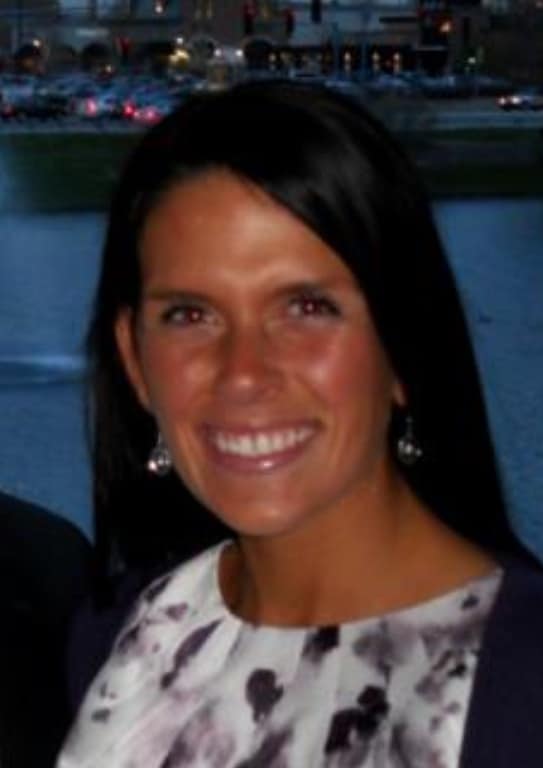Plenty of adults have a hard time staying on top of their own dental health and may even dread going to the dentist for care. Some people may even wrongly think that baby teeth aren’t important since little kids are just going to lose those baby teeth anyway. However, it is very important to start building healthy habits early on. Did you know that a child’s dental health can have huge impacts on their school readiness and their ability to learn?

Taking Care of Your Child’s Dental Health
We know that children must be healthy and ready to learn for school, and good dental health plays a bigger role than you might think.
Stay Connected
Sign up to receive news, helpful tools and learn about how you can help our youngest learners.
We know that children must be healthy and ready to learn for school, and good dental health plays a bigger role than you might think. When we think about health and wellness, often dental health doesn’t come to mind; however, poor dental health during a child’s earliest years of life can be connected to poor attendance in school, lower test scores, decreased high school graduation rates and fewer job opportunities. Dental decay is the leading chronic health condition among children in the United States, and it’s 100% preventable!
Taking charge of your little one’s dental health is so important. The earlier you start taking your child to the dentist the easier it will become! They’ll get used to going and are likely to really enjoy it. We recommend taking your little one to a pediatric dentist and always seeing the same provider so they know your family better.
Why a Pediatric Dentist?
- Pediatric dentists have been trained to expertly provide care to young children.
- If treatment is needed, pediatric dentists can often provide care in fewer visits.
- Having a consistent dentist will help both you as a parent and your child build a relationship with someone they know and trust.
- As a parent you will receive quality dental health education on what you need to do to make sure your children are healthy. This includes information on nutrition, bottles, pacifiers, how to brush children’s teeth well, future growth and development and dental health issues associated with conditions like asthma or ADHD.
- In a dental health emergency (fall, chip, pain), you have a trusted place you can take your child to be seen.
Important Reminders:
- Exams and preventive care are important, but a child is not healthy if they have an infection (cavity) in their mouth.
- The sooner tooth decay is treated, the easier it will be for the child and parent. If ignored, it will get worse and may cause a serious problem.
- Children should be seen every 6 months (or more often if a child has a high risk), starting no later than 12 months. Parents shouldn’t leave the dental office without making a follow-up appointment.
Questions to Consider About Your Child’s Dental Health:
- Do you need a referral to find a dentist? Is your dentist in your insurance network?
- Are you happy with your child’s dentist?
- When was the first time your child visited a dentist?
- When was the last time your child visited a dentist?
- Do you brush your child’s teeth daily?
- Do you ever notice your child avoiding hot or cold drinks or hard to chew foods, having tooth pain (especially when chewing food), bleeding from the gums, or any odor from their mouth?
Tips for Infants:
- Start cleaning your child’s mouth with a small soft toothbrush even before teeth come in. This will make it easier for your child to get used to it.
- Do not let your child fall asleep with a bottle or while breastfeeding.
- Never add sugar or honey to a bottle.
- To sooth teething, rub gums with a cold spoon or clean teething ring.
- As soon as the first tooth pops up, (at about 6 months) use a soft bristle brush and small amount of fluoride toothpaste (no more than grain of rice size) to brush.
- Stop use of bottle at 1 year; instead use cup for drinking.
- Visit dentist when teeth appear—experts recommend taking your baby to the dentist by the time their first tooth comes in, and no later than 12 months. It’s never too early to see the dentist!
Tips for Toddlers & Preschoolers:
- Continue to brush your child’s teeth. They don’t have the skills to effectively do on their own until they can tie their shoes (at about 6-8 years).
- When you brush your child’s teeth, lift the lip and look for color changes
Give fruit rather than juice. If you do give juice, give no more than 6 oz. per day, and follow-up with water. - At age 3 begin flossing when two teeth touch.
- Teach child to flush mouth with water after every meal.
- Visit the dentist every 6 months, or more often if your dentist recommends it.
- Cheese makes a good snack swap and is great for teeth!
- Always be positive when you talk to your child about going to the dentist.
Children with a toothache may not know how to tell you they have pain. Be on the lookout for these signs:
- Biting on one side
- Eating only soft foods
- Avoiding eating or drinking hot or cold foods
Moodiness
You have the power to make sure your child is free from tooth decay!
Resources:
About the Author

Melanie Santarelli
Health and Nutrition Services Manager
Melanie Santarelli, MPH, has worked in public health and with or for children for almost two decades. At Start Early, she oversees the implementation of health and nutrition services.
More Like This
Take Action
Raise your voice and encourage lawmakers to prioritize early learning and care at the local, state and federal level.
Support Our Work
Together, when we start early, we can close the opportunity gap and ensure every child has a chance to reach their full potential.
Resources for Families
Discover educational activities and resources from Start Early experts to provide easy and engaging educational experiences with your child.

